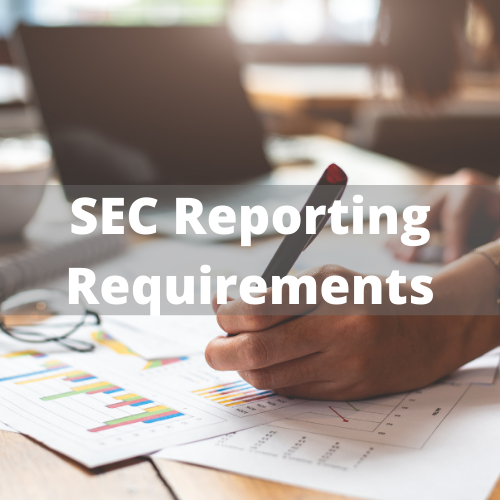SEC reporting requirements as the house attempts to ease the process. In January 2015, the House of Representatives passed H.R. 37 named the Promoting Job Creation and Reducing Small Business Burden Act. The bill, among other things, proposes to ease reporting obligations for emerging growth companies (“EGCs”) and small issuers generally. Emerging Growth Company status is a temporary status given to smaller issuers wanting to go public. To qualify an issuer must make less than $1 billion in revenue[1] (issuers that had an IPO prior to December 2011 are unable to qualify.)[2] Whether an issuer is an EGC or just a smaller issuer, the bill attempts to ease the reporting obligations for both.
The bill has yet to be passed by the senate, and commentators say the chance of it surviving a white house veto is unlikely.[3] Even still, this is good news for smaller issuers as it shows the House’s disposition. The bill would change several sections of the JOBS Act making reporting burdens lighter. The House wants to scale back strict reporting requirements imposed on small companies.
Title VI of the bill exempts EGCs from several Sarbanes-Oxley and Dodd-Frank requirements for five years or until the company loses its EGC status. If passed, this section reduces the number of days an EGC must wait after filing a registration statement to begin the roadshow. The law, as it stands, says twenty-one days. The bill would change the time frame to fifteen days. In reality, most issuers wait roughly ten weeks after first filing the registration statement before beginning the roadshow.[4] Perhaps the House feels that shortening the time will put pressure on the SEC to streamline the process. Congress may need to give more funding to the SEC to streamline this process.
Title VI also gives a grace period to EGCs that file a registration statement and subsequently lose their EGC status. The grace period is the earlier of either one year or the consummation of its IPO. This gives EGCs that are near the threshold of $1 billion the ability to keep their status long enough to file a registration statement confidentially.
Title VII exempts EGCs and small issuers from having to use eXtensible Business Reporting Language (XBRL). This is helpful because many companies find XBRL tedious and burdensome.[5] In 2009, the SEC-mandated its use partly in the hopes that companies would use it internally. This has not been the case for many issuers.[6]
Title X requires the SEC to review and revise Regulation S-K to reduce burdens on smaller issuers. The exact words from the bill direct the SEC to revise Regulation S-K “to further scale or eliminate requirements of regulation S-K . . . while still providing all material information to investors.”[7] What exactly this language means is unclear. What is clear however is that the House is pushing for lighter reporting burdens.
Hopefully, H.R. 37 will be passed by the Senate and quickly implemented by the regulators.
This blog provides general information about the law only and does not constitute legal advice. You should not act or refrain from acting based on these materials without first obtaining legal counsel. Contact one of our attorneys today for a free consultation: https://bradshawlawgroup.com/location/contact/ to see how the information in these articles may apply or not apply to your particular situation. This website also contains links to third-party websites. We are not responsible for, and make no representations or endorsements with respect to, third-party websites, or with respect to any information, products, or services that those websites might provide.
[1] SEC, JOBS Act FAQs, http://www.sec.gov/divisions/corpfin/guidance/cfjjobsactfaq-title-i-general.htm
[2] Alan Singer, JOBS Act Presentation, https://www.morganlewis.com/pubs/JobsActPresentation.pdf
[3] https://www.tumblr.com/search/veto%20threat
[4] Gus Fuldner, http://www.quora.com/How-long-does-it-take-between-a-company-filing-to-IPO-and-the-IPO-itself
[5] Emily Chasan, Companies Grow Weary of XLRB, http://blogs.wsj.com/cfo/2012/11/13/companies-grow-weary-of-xbrl/
[6] Id. See also Kathy Hoffelder, Finance Execs Find XLRB Useless, http://ww2.cfo.com/gaap-ifrs/2012/11/finance-execs-find-xbrl-useless/#.ULTLffprC3k.facebook
[7] H.R. 37 114th Cong. (1st Sess. 2015), https://www.congress.gov/114/bills/hr37/BILLS-114hr37rfs.pdf

